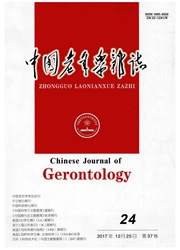

 中文摘要:
中文摘要:
目的:评价含氟达拉滨(Fludarabine)的FLAG方案治疗难治复发性急性白血病的临床疗效及不良反应。方法:采用FLAG标准方案治疗我院收入住院的44例难治复发性急性白血病患者,治疗期间均采用对症支持治疗。结果:44例难治复发性急性白血病患者16例(36.4%)完全缓解,10例(22.7%)部分缓解,18例未缓解,总体缓解率为59.1%;年龄≥45岁及〈45岁的患者缓解率分别为30%和67.6%(P=0.033);WT1^+-FLT3^+-PRAME^+与FLT3^+-PRAME^+患者缓解率分别为54.5%和50%(P=0.821),难治组及复发组的患者缓解率分别为55.6%和64.7%(P=0.548)。结论:FLAG方案治疗难治复发性急性白血病有效率高,临床疗效好,所引起的不良反应主要为骨髓抑制及感染,难治复发性急性白血病患者可以耐受此类不良反应,推荐使用。长期疗效有待进一步观察和随访。
 英文摘要:
英文摘要:
Objective:To evaluate the clinical efficacy and adverse reaction of FLAG regimen in the treatment of patients with refractory and relapse acute leukemia. Methods: Forty-four patients with refractory and relapse acute leukemia in our hospital were treated with FLAG regimen, all patients were treated with symptomatic and supportive treatment during treatment period. Results:The complete remission (CR) rate after 1 course of induction therapy in patients with FLAG regimen was 36.4% , partial remission (PR) rate was 22.7 % and the overall efficacy (OR) rate 59.1% ; the OR rate of aged over and under 45 years old were 30% and 67.6% , WT1 + -FLT3 + -PRAME + group and FLT3 + -PRAME + group were 54.5% and 50% ,Refractory group and Relapse group were 55.6% and 64.7%. Conclusion:FLAG regimen has a significantly higher remission rate and an efficacy rate, adverse reactions caused by the regimen were bone marrow suppression and infection. Patients with refractory and relapse acute leukemia can tolerate this kind of adverse reactions, so it is commended using it in clinical practice, long-term efficacy needs to be further observed and followed up.
 同期刊论文项目
同期刊论文项目
 同项目期刊论文
同项目期刊论文
 期刊信息
期刊信息
